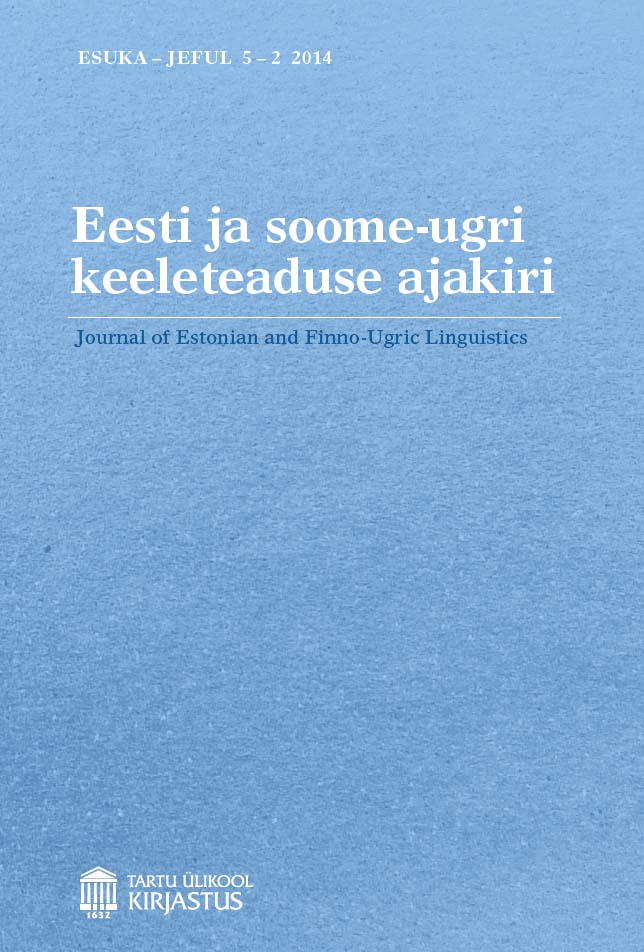Uralic vs Indo-European contacts: borrowing vs local emergence vs chance resemblances
DOI:
https://doi.org/10.12697/jeful.2014.5.2.02Keywords:
Uralic, Indo-European, convergence, divergence, chance resemblances, cognates, loan words, linguistic areasAbstract
In this article I shall review the field of studies: “Uralic vs Indo-European contacts”. I shall report the thesis of what can be called the “old” and the “new” school, respectively, dealing with this topic. According to the old school, the contacts took place, essentially, among the historical languages, whereby the criteria for identifying loanwords are often unclear. According to the new school, instead, the (intensive) Uralic vs Indo-European contacts took place, essentially, at the level of protolanguages, and the loanwords are easily identifiable, thanks to the regularity of the relevant sound changes and substitutions. I shall claim that the thesis of new school is unlikely to be correct, on methodological and factual grounds: borrowing among proto-languages is impossible a priori; sound changes and substitutions are not always regular and systematic; the “binary” analysis “borrowing vs inherited” is out-of-date; the Uralic and Indo-European languages belong to different, distant “areal contexts”.
Kokkuvõte. Angela Marcantonio: Uurali ja indoeuroopa keelte kontaktid: laenamine, kohalik kujunemine, juhuslik sarnasus. Artiklis annan ülevaate uurimisteemast “Uurali ja indoeuroopa keelte kontaktid”. Käsitlen küsimust, mida võib selle teemaga seoses nimetada “uueks” ja “vanaks” koolkonnaks. Vana koolkonna järgi toimusid kontaktid ajalooliste keelte vahel, kusjuures laensõnade kindlakstegemise kriteeriumid on sageli ebaselged. Uue koolkonna järgi aga toimusid (intensiivsed) uurali ja indoeuroopa kontaktid algkeelte tasandil ja laensõnu on lihtne kindlaks teha tänu oluliste häälikumuutuste ja häälikuasenduste reeglipärasusele. Väidan, et uue koolkonna tees ei näi metodoloogiliselt ja faktiliselt aluselt korrektne: algkeelte vaheline laenamine on a priori võimatu, häälikumuutused ja -asendused ei ole alati reeglipärased ja süsteemsed, “binaarne” jaotus “laenatud või genuiinne” on aegunud, uurali ja indoeuroopa keeled kuuluvad erinevasse, teineteisest kaugesse “areaalsesse konteksti”.
Märksõnad: uurali keeled, indoeuroopa keeled, konvergents, divergents, juhuslik sarnasus, sugulassõnad, laensõnad, keeleareaalid


